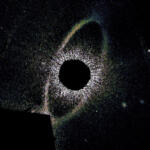Adjunct Faculty

Paul Kalas
Specialty areas
Adaptive optics,Adaptive optics and Radio Observations of the giant planets,Astronomy,Circumstellar matter around main sequence and pre-main sequence stars,Exosolar planets,High contrast imaging with adaptive optics and the Hubble Space Telescope,Mid-infrared and sub-millimeter imaging.,Optical and near-infrared coronagraphy,Stellar and planetary dynamics,Trans-Neptunian objects.
Research Interests
Dr. Kalas images planetary systems around other stars using the Hubble Space Telescope, the James Webb Space Telescope, ALMA, Keck, Gemini, and many other major astronomical observatories. See his detailed website for additional information. His research led to the discoveries of dusty debris disks around nearby stars as well as Fomalhaut b1 and b2. He is a science team member on several major projects, such as the Gemini Planet Imager, which is the next pioneering step in imaging planetary systems.
Biography
Dr. Kalas was born in New York and raised near Detroit, Michigan. He studied Astronomy and Physics at the University of Michigan, Ann Arbor and earned a Ph.D with astronomer David Jewitt at the University of Hawaii. Before coming to Berkeley, he worked as a postdoctoral scientist with Steven Beckwith at the Max Planck Institute for Astronomy in Heidelberg, and the Space Telescope Science Institute in Baltimore. In 2009 he received the AAAS Newcomb Cleveland Prize for the most outstanding paper published in the journal Science. Dr. Kalas founded the Spirit of Lyot conference series and developed an innovative astronomy graduate course on science ethics. He is the author of two books, The Oneironauts and Crete Swim, with a third in development based on his astronomy ethics course.
Projects
The Gemini Planet Imager Exoplanet Survey

Lead:Paul Kalas, James Graham
The Gemini Planet Imager (GPI) is an advanced science instrument that exploits the latest generation of adaptive optics technology, coronagraphy and detectors. We commissioned GPI at the Gemini South telescope in Chile in 2014 and finished a five-year survey for exoplanets called GPIES (GPI Exoplanet Survey). Among the many discoveries were the planet 51 Eri b and many dusty debris disks, published in over 30 peer-reviewed manuscripts. GPI will be upgraded and installed on Gemini North in Hawaii in 2025.

